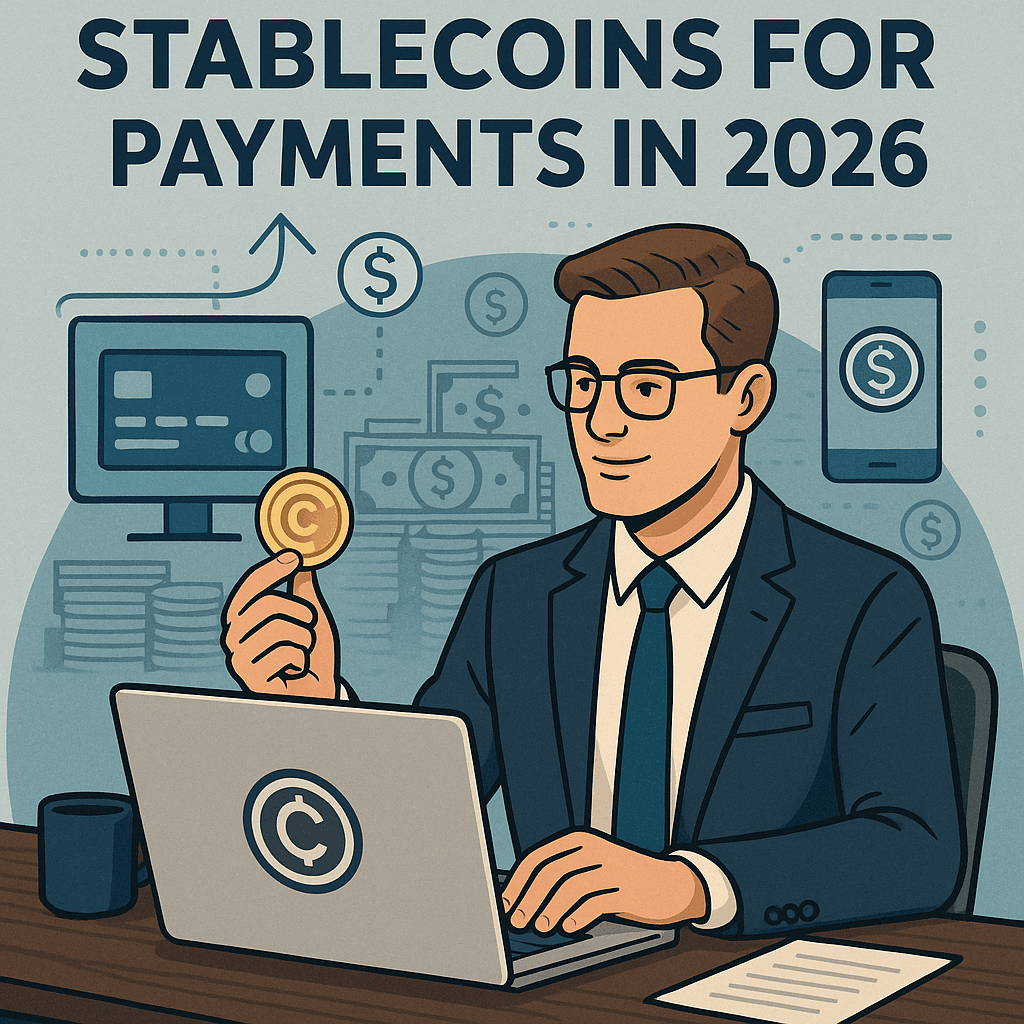What Is Smart Escrow and Why It Matters
Cryptocurrency payments are irreversible. Send funds to the wrong address and they're gone forever. This fundamental blockchain feature has prevented mainstream adoption despite crypto's speed and cost advantages.
Smart escrow solves this problem using programmable contracts that hold funds until both parties fulfill agreed conditions. Unlike traditional irreversible transfers, smart escrow enables cancellation windows, automated dispute resolution, and protection against fraud while maintaining blockchain benefits.
In 2025, 46% of merchants accepting cryptocurrency struggle with payment irreversibility. Smart escrow provides the missing trust layer businesses need without sacrificing decentralization.
Modern platforms like RebelFi have moved smart escrow from theory to production, demonstrating that programmable payment protection works at scale for real business transactions.
The Irreversibility Problem: Why Crypto Payments Can't Be Reversed
Blockchain transactions are permanent once confirmed. Bitcoin requires 5-6 confirmations (about 60 minutes), while Ethereum needs 20 confirmations before transactions become irreversible.
This creates critical risks:
Wrong Address = Permanent Loss: One incorrect character means funds disappear forever with no recovery option.
Fraud With No Recourse: Unlike credit cards protected by the Fair Credit Card Billing Act, crypto users have zero fraud protection.
High Error Rates: Cross-border B2B crypto payments face 14% failure rates due to address errors and technical mistakes.
Growing Fraud: Cryptocurrency fraud increased 25% in 2025, with global digital payment fraud exceeding $50 billion annually.
The technical reason is simple: each blockchain block contains a cryptographic hash linking to the previous block. Reversing a transaction requires rewriting the entire chain across thousands of nodes simultaneously, which is computationally impossible.
How Smart Escrow Works: Step-by-Step Process
Smart escrow uses self-executing smart contracts on blockchains like Ethereum and Solana to automate payment protection:
Step 1: Agreement: Buyer and seller define transaction terms including delivery requirements, payment amount, and dispute resolution procedures.
Step 2: Deposit: Buyer deposits cryptocurrency (typically stablecoins like USDC or USDT) into the smart contract address.
Step 3: Funds Lock: The smart contract holds funds securely. Neither party can access them until conditions are met. During this period, funds can earn 6-9% APY through DeFi protocol integration.
Step 4: Delivery: Seller delivers goods or services as promised. Progress can be verified through GPS tracking, IoT sensors, or manual confirmation.
Step 5: Release: Upon verification, the smart contract automatically releases payment to the seller. No intermediaries needed.
Step 6: Dispute Resolution: If issues arise, the contract follows predefined arbitration procedures or allows for multi-party resolution.
Unlike traditional escrow charging 1-3% fees, smart contracts typically cost 0.5-1% while settling in seconds instead of days.
5 Key Features That Prevent Crypto Payment Losses
1. Cancellation Windows (Reversible Payments)
Smart escrow allows senders to cancel before recipients claim funds. Configure windows from minutes to weeks based on transaction size. A manufacturer ordering $100,000 in materials can cancel if shipping delays occur, with funds returning automatically.
2. Automated Yield Generation
Idle escrow funds earn 6-9% annual yields through integrated DeFi protocols. A $50,000 payment held 30 days generates approximately $250, offsetting transaction costs or sharing between parties.
3. Programmable Release Conditions
Smart contracts execute based on:
Time-based triggers (automatic payment on deadline)
Milestone completion (construction phases, software deliverables)
GPS/IoT verification (shipment tracking, delivery confirmation)
Multi-signature approval (multiple stakeholders must sign)
Oracle data (external event triggers)
4. Cross-Chain Compatibility
Deposit on Ethereum, receive on Solana. Modern platforms handle bridging automatically, eliminating single-blockchain lock-in.
5. Built-In Dispute Resolution
Predefined arbitration procedures activate automatically when issues arise. No lawyers, courts, or manual intervention needed for standard disputes.
Top 5 Smart Escrow Use Cases (2025)
Cross-Border Business Payments
Problem: Traditional international transfers take 3-5 days and cost 2-3% in fees.
Solution: Smart escrow settles in minutes at 0.5-1% cost with payment protection.
Market Size: Cross-border blockchain payments expected to hit $5 trillion in 2025.
Real Example: Platforms like RebelFi enable businesses to process international payments with cancellation windows and yield generation, transforming payment float into revenue.
Freelance & Contractor Payments
Problem: Freelancers want instant pay, clients need deliverable verification.
Solution: Milestone-based releases with automatic payment upon completion.
Benefit: 28% of Americans now own crypto, making this ideal for global contractors.
E-Commerce Transactions
Problem: Balance buyer protection with fast seller payment
. Solution: Instant release upon delivery confirmation, automated dispute resolution.
Scale: 76% of crypto payments use stablecoins, enabling price-stable e-commerce.
Supply Chain Finance
Problem: Complex multi-party payments require manual verification.
Solution: GPS-triggered payments at each checkpoint (warehouse, port, customs, delivery).
Result: Reduced working capital needs with real-time payment visibility.
Real Estate & High-Value Assets
Problem: Traditional escrow costs 1-2% and takes weeks.
Solution: Smart contracts release funds instantly upon title transfer verification.
Savings: $10,000-$20,000 on a $1M property transaction.
Smart Escrow vs Traditional Methods: Direct Comparison
Feature | Traditional Escrow | Crypto Transfer | Smart Escrow |
Cost | 1-3% + setup fees | Network fees only | Network fees only |
Speed | 3-7 days | 10-60 minutes | 10-60 minutes |
Reversibility | Yes (manual) | No | Yes (programmable) |
Yield Generation | 0% | 0% | 6-9% APY |
Transparency | Limited | Full | Full |
Automation | Manual review | None | Fully automated |
Dispute Resolution | Lawyer/court | Impossible | Automated protocol |
Cross-Border | Complex/expensive | Fast/cheap | Fast/cheap + protection |
Cost Savings Example:
$100,000 transaction through traditional escrow: $1,000-$3,000
Same transaction through smart escrow: $500-$1,000
Plus potential yield: $250-$750 during 30-day hold
Speed Advantage:
Traditional bank transfer: 2-5 days internationally
Blockchain payment: 27 seconds average
Smart escrow: Same speed with protection
How to Choose a Smart Escrow Platform
Integration Options
API Integration: Direct connection to existing payment systems
White-Label Solutions: Branded escrow under your company name
No-Code Platforms: Web interface for non-technical users
SDK Development: Build custom escrow functionality
Platform Selection Criteria
Track Record: Minimum 6 months live operation, $10M+ processed
Blockchain Support: Multi-chain capability (Ethereum, Solana, Polygon)
Regulatory Compliance: KYC/AML integration, proper licensing
Cost Structure: Clear fee breakdown, no hidden charges
Customer Support: 24/7 availability for high-value transactions
Smart Escrow Market Growth (2025 Data)
Adoption Rates:
46% of merchants now accept cryptocurrency payments
78% of Fortune 500 companies exploring crypto for B2B transfers
76% of crypto payments use stablecoins (USDC, USDT)
Market Size:
Global crypto payment gateway market: $1.68 billion
Growing at 18.9% annually
Blockchain payment transactions: $20+ billion in 2024
Regulatory Environment:
GENIUS Act (July 2025) established federal stablecoin framework
70+ countries updated blockchain payment regulations in 2023
EU's MiCA framework operational from 2024
Key Drivers:
Stablecoin adoption solving volatility concerns
Major processors (Stripe, PayPal) adding crypto support
Cross-border payment needs driving enterprise adoption
Common Challenges & Solutions
Technical Complexity
Challenge: Smart contract development requires specialized expertise.
Solution: Use established platforms with audited contracts rather than building from scratch.
User Adoption
Challenge: Many users unfamiliar with crypto and smart contracts.
Solution: Platforms offering traditional UI/UX with blockchain backend. Education resources and customer support.
Regulatory Compliance
Challenge: Varying regulations across jurisdictions.
Solution: Partner with platforms handling KYC/AML and maintaining proper licensing.
Network Congestion
Challenge: High fees and slow confirmations during blockchain congestion.
Solution: Multi-chain platforms letting users choose optimal networks based on conditions.
Implementation Roadmap for Businesses
Phase 1: Assessment (Week 1-2)
Identify payment flows where irreversibility creates risk
Calculate potential savings (fees + error costs + yield opportunity)
Evaluate technical integration requirements
Phase 2: Platform Selection (Week 3-4)
Review 3-5 platforms meeting security criteria
Test with small transactions ($100-$1,000)
Verify integration compatibility
Phase 3: Pilot Program (Month 2-3)
Start with low-risk, high-volume use case
Train staff on smart escrow workflows
Gather user feedback and optimize
Phase 4: Scale (Month 4+)
Expand to higher-value transactions
Add complex workflows (milestones, multi-party)
Monitor savings and ROI
Future of Programmable Payments
Smart escrow represents the first step toward fully programmable money:
Near-Term (2025-2026):
AI-driven escrow negotiating terms automatically
Broader IoT integration for real-world verification
CBDC integration (114 countries exploring)
Medium-Term (2027-2028):
Payment Networks as a Service (specialized escrow pools)
Zero-knowledge dispute resolution (privacy-preserving)
Cross-chain atomic swaps integrated
Long-Term (2029+):
Fully automated supply chains with escrow-based payments
Smart contract insurance becoming standard
Traditional escrow largely replaced by programmable alternatives
RebelFi: Production-Ready Smart Escrow Infrastructure
While many platforms talk about programmable payments, RebelFi has built production-ready infrastructure processing real transactions on Solana mainnet. The Secure Transfers protocol demonstrates how smart escrow should work in 2025:
Cancellable Payments with Yield: Unlike simple escrow that holds funds idle, RebelFi's system generates 6-9% APY on all escrowed funds through integrated DeFi protocols. A $50,000 B2B payment held for 30 days automatically earns approximately $250, enough to cover transaction costs entirely.
Cross-Chain Flexibility: Businesses can accept deposits on Ethereum or other chains while processing on Solana for speed and low costs. Recipients collect on their preferred blockchain. This eliminates the friction of forcing all parties onto a single network.
Custody-Agnostic Architecture: The critical difference: businesses maintain complete control using existing custody solutions (Fireblocks, BitGo, Tatum). No need to transfer custody to access programmable features. This removes the primary barrier preventing institutions from adopting smart escrow.
Pool Operator Model: RebelFi enables specialized payment pools where organizations can operate their own escrow networks with custom rules and fee structures. An e-commerce platform can run buyer protection pools while insurance companies operate claims payment pools, each optimized for specific use cases.
This "Payment Networks as a Service" approach lets any business launch sophisticated payment infrastructure without building everything from scratch.
Conclusion: The End of Irreversible Crypto Payments
Cryptocurrency's irreversibility problem held back mainstream adoption for over a decade. Smart escrow solves this through programmable contracts that add protection without sacrificing blockchain's core advantages.
Key Takeaways:
Smart escrow enables reversible crypto payments through cancellation windows
Automated yield generation (6-9% APY) transforms escrow from cost to revenue
76% of crypto payments use stablecoins, enabling price-stable transactions
Market growing 18.9% annually with Fortune 500 adoption accelerating
Regulatory clarity (GENIUS Act, MiCA) removing institutional barriers
The technology has proven itself with billions in processed transactions. As platforms mature and adoption grows, smart escrow will evolve from competitive advantage to industry standard.
For businesses exploring crypto payments, the question isn't whether to adopt programmable protection but which platform provides the best combination of security, cost, and functionality.
Ready to explore smart escrow for your business? Visit RebelFi to get a pilot started. The future of payments is programmable, and that future is already here.



